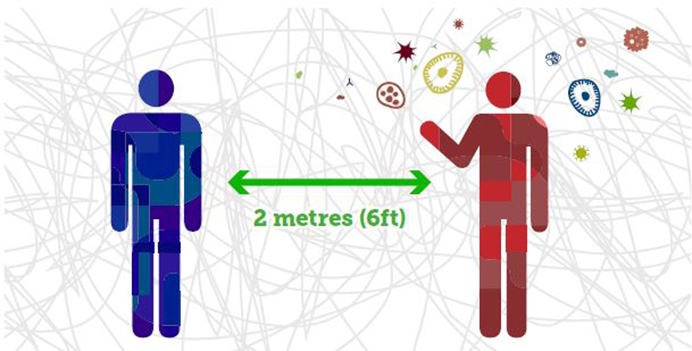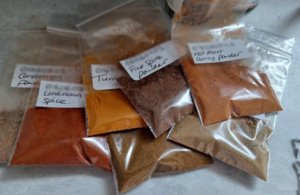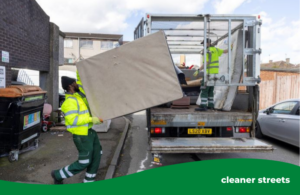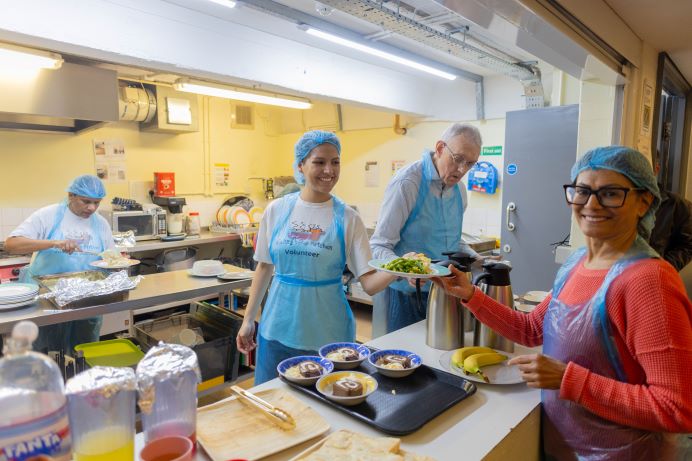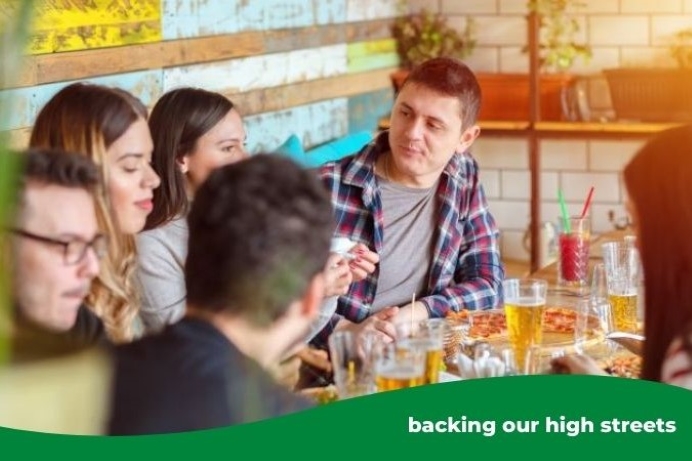There is a lot of talk about social distancing at the moment and why it is important in beating the coronavirus (COVID-19) epidemic. Reducing social contact with other people inevitably reduces our contact with the virus. That is why the government is urging us all to stay at home.
By social distancing, you are protecting your own health, the health of others – and, critically, it also helps to protect our NHS by preventing it from becoming overloaded with serious cases in the same period. You may have heard this being described as ‘flattening the curve’ and also probably seen the slogan: Stay at home, protect the NHS, save lives.
If the NHS could not cope with the number of cases, it would inevitably mean some people would not able to receive help and people would die.
This virus is particularly infectious, much more so than the flu. As a result, if we simply carry on outside our homes and not keeping our distance, we will infect others – and this will inevitably include people who are particularly at risk of serious illness.
The coronavirus spreads when an infected person coughs (or sometimes sneezes) out small droplets – packed with the virus – into the air. These can potentially be breathed in if you are within two metres of the infected person.
If you have to go out, stay two metres apart
This is why, if you do go outdoors, you must always keep a two-metre (or six-foot) gap between you and other people to avoid contagion.
You must also thoroughly wash your hands when you get back home because the droplets can also cause an infection if you touch a surface they have landed on, and then you touch your face with unwashed hands.
Of course, unless you are a key worker or helping someone vulnerable, you are only meant to be leaving home for essential supplies (food or medicine), with trips kept to a minimum; or for one bit of exercise per day – done locally and either done alone or with members of your own household.
Take extra care if you are ‘at risk’
As the government has stated, social distancing is particularly important for those classed as being in ‘at risk’ groups – typically people aged over 70 years old or with underlying health conditions or pregnant women, or those who are ‘extremely vulnerable.’ For these people, more stringent social distancing is recommended: You should stay at home and not leave; and cut off all non-essential physical interaction with others. If you are in these categories – or know someone who is – and might need help from the community to help get your through social distancing, visit Ealing Together.
You can also call a dedicated helpline set up by the council to help the most vulnerable residents who are isolating themselves and in need of support – on 020 8825 7170 (during office hours only: 9am-5pm Monday-Friday, 10am-4pm at weekends).
More advice from the government on social distancing and isolating yourself is available online at Gov.UK – and also in a variety of different languages at www.doctorsoftheworld.org.uk/coronavirus-information
Stay connected with others
It is important for your mental health that these physical distancing measures do not mean cutting off social connection with others altogether. Because you can stay in touch through your phone and internet-based chat – ‘distant socialising’ as some people have described it. Having support from friends and family during this time is more important than ever to get through the tough times.
This is a challenging time for us all. It is important to look after your physical and mental health and the government website gives some other useful tips on how you can do this at home.
Have symptoms? Keep your distance
The government’s guidelines are if you, or someone you live with, has:
- A high temperature, or
- A new, continuous cough
…you should self-isolate – meaning you should not leave home for any reason. If you live alone, you should not leave your home for seven days. If you live with others, all of you need to remain inside the home for 14 days.
If you and your family (or other people you live with) are all at home and one of you gets ill, that person should try to isolate themselves in one room as far as is practically possible.
The best thing to do, if one of you has symptoms, is to assume all of you have some level of the virus – and try to keep distance wherever that is possible. If you make another person in your home ill, and then there are two of you ill, you risk making a third person even more ill with a high dose.
Find out more, and see if your symptoms might be coronavirus, online at 111.nhs.uk
Come together by staying apart
We are being reminded at this time just how connected we are and how much we depend on each other. And it is not just the spread of the virus. For everyone who works at home, there are many more who make that possible by working at the hospitals, in our care homes, collecting our bins and in the supermarkets. This moment reminds us how much we all need each other.
When we wash our hands and keep our distance, we protect everyone in our community. At this crucial time, we can come together by staying apart.
